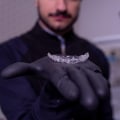Tooth extraction is a common dental procedure that can be necessary for a variety of reasons. While it is a minimally invasive procedure, there is still a risk of infection after the extraction. Most infections will occur a few days after the tooth is extracted, but in some cases, they can appear as late as 3 to 4 weeks after the procedure. To avoid infection after tooth extraction, it is important to pay close attention to your mouth and overall health for signs that something might be wrong. Infections usually occur 1 to 2 days after extraction, but in some cases, they appear much later.
It all depends on the severity of the infection. In most regular extractions, the patient should be fully cured within one to two weeks, but an infection will delay this process. Once a tooth has been extracted, bacteria will still live in the mouth, especially in people who have poor oral hygiene. Infections are very common after extractions. Depending on how bad the tooth that the dentist extracted is, he may prescribe some antibiotics that will greatly reduce the risk of getting an infection.
However, in some cases, even antibiotics can't prevent infection. A tooth infection can last for several weeks after the wisdom tooth has been removed. And the infection can start as late as three to four weeks after removal. Sometimes, patients stop taking prescribed antibiotics too soon or they assume that a persistent infection will go away if they have taken all their medications. However, you should take antibiotics until the infection clears up to prevent the bacteria from multiplying and becoming resistant to antibiotics. To avoid infection after tooth extraction, it is important to follow your dentist's instructions carefully and take all prescribed medications as directed.
Additionally, you should maintain good oral hygiene by brushing and flossing regularly and avoiding smoking or using any other oral tobacco products while you are recovering. If you notice an abnormal amount of pain in the days and weeks after your tooth extraction, there's a chance that you developed an infection after your tooth extraction. As a result, try to refrain from smoking while you are recovering if you want to avoid getting an infection after tooth extraction. Another thing to consider is the reason for the tooth extraction and where it was located. Detecting an infection after a tooth has been extracted isn't exactly the most comfortable experience, but it can be easily treated if action is taken right away. Since wisdom tooth extraction is the most common dental surgery procedure, millions of people each year experience some type of complications or discomfort afterward.






